SELF-REGULATION, EMOTION EXPRESSION & CLASSROOM ...
SELF-REGULATION, EMOTION EXPRESSION & CLASSROOM ...
SELF-REGULATION, EMOTION EXPRESSION & CLASSROOM ...
Create successful ePaper yourself
Turn your PDF publications into a flip-book with our unique Google optimized e-Paper software.
children’s demonstration of learning behaviors, as well as success with math and<br />
reading (Ladd, Birch, & Buhs, 1999; Valiente et al., 2007). As a result of these relations<br />
between regulation and classroom involvement and learning behaviors, it is important<br />
to investigate whether or not self-regulation is partially mediated by the child’s on-task<br />
classroom involvement, where the child is engaged with their peers and involved with<br />
daily activities.<br />
The previous work by Ann Shields and her colleagues (see Shields & Cicchetti, 1997,<br />
1998; Shields et al., 2001; Shields, Ryan & Cicchetti, 2001) suggests that early selfregulatory<br />
abilities predict concurrent and subsequent classroom adjustment. Further,<br />
Coolahan, Fantuzzo, Mendez, and McDermott (2000) found that children who<br />
demonstrated low levels of classroom adjustment problems, namely negative<br />
involvement in the classroom and with peers, also exhibited increased levels of<br />
classroom learning behaviors (attention/persistence and attitude toward learning).<br />
Valiente and colleagues (2008) have advanced this notion, by pointing out that the<br />
present body of research suggests that students’ classroom involvement is associated<br />
with their academic success and their on-task involvement might actually mediate the<br />
connection between facets of emotional competence and learning. As a result, I<br />
hypothesize that on-task involvement will play a partial mediating role through which<br />
self-regulation impacts later classroom learning behaviors (see figure 5).<br />
32



![[Sample B: Approval/Signature Sheet] - George Mason University](https://img.yumpu.com/21978828/1/190x245/sample-b-approval-signature-sheet-george-mason-university.jpg?quality=85)
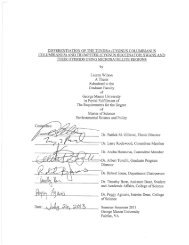
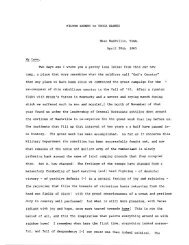
![[Sample B: Approval/Signature Sheet] - George Mason University](https://img.yumpu.com/18694905/1/190x245/sample-b-approval-signature-sheet-george-mason-university.jpg?quality=85)
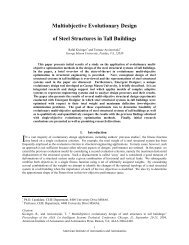
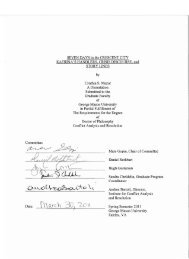
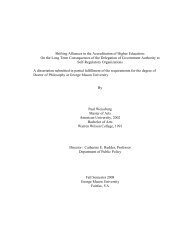
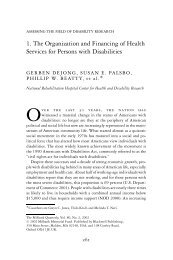
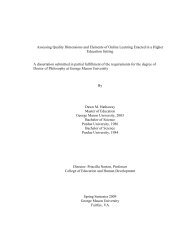
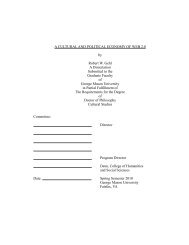
![[Sample B: Approval/Signature Sheet] - George Mason University](https://img.yumpu.com/18694552/1/189x260/sample-b-approval-signature-sheet-george-mason-university.jpg?quality=85)
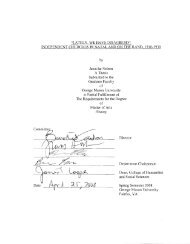
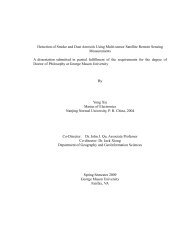
![[Sample B: Approval/Signature Sheet] - George Mason University](https://img.yumpu.com/18694474/1/190x245/sample-b-approval-signature-sheet-george-mason-university.jpg?quality=85)